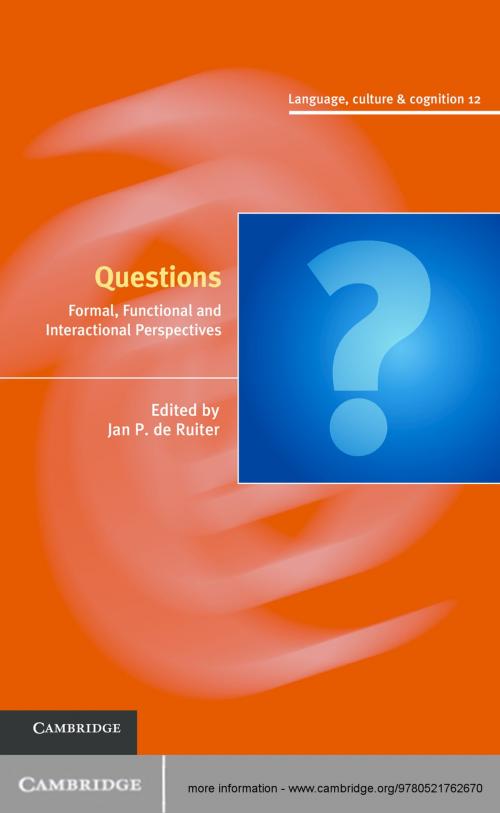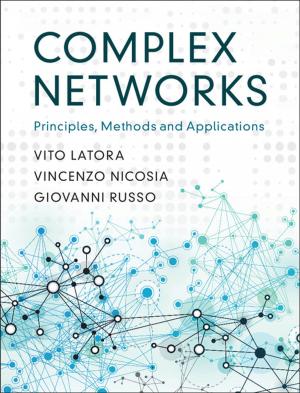Questions
Formal, Functional and Interactional Perspectives
Nonfiction, Reference & Language, Language Arts, Linguistics| Author: | ISBN: | 9781139853569 | |
| Publisher: | Cambridge University Press | Publication: | August 16, 2012 |
| Imprint: | Cambridge University Press | Language: | English |
| Author: | |
| ISBN: | 9781139853569 |
| Publisher: | Cambridge University Press |
| Publication: | August 16, 2012 |
| Imprint: | Cambridge University Press |
| Language: | English |
The view that questions are 'requests for missing information' is too simple when language use is considered. Formally, utterances are questions when they are syntactically marked as such, or by prosodic marking. Functionally, questions request that certain information is made available in the next conversational turn. But functional and formal questionhood are independent: what is formally a question can be functionally something else, for instance, a statement, a complaint or a request. Conversely, what is functionally a question is often expressed as a statement. Also, verbal signals such as eye-gaze, head-nods or even practical actions can serve information-seeking functions that are very similar to the function of linguistic questions. With original cross-cultural and multidisciplinary contributions from linguists, anthropologists, psychologists and conversation analysts, this book asks what questions do and how a question can shape the answer it evokes.
The view that questions are 'requests for missing information' is too simple when language use is considered. Formally, utterances are questions when they are syntactically marked as such, or by prosodic marking. Functionally, questions request that certain information is made available in the next conversational turn. But functional and formal questionhood are independent: what is formally a question can be functionally something else, for instance, a statement, a complaint or a request. Conversely, what is functionally a question is often expressed as a statement. Also, verbal signals such as eye-gaze, head-nods or even practical actions can serve information-seeking functions that are very similar to the function of linguistic questions. With original cross-cultural and multidisciplinary contributions from linguists, anthropologists, psychologists and conversation analysts, this book asks what questions do and how a question can shape the answer it evokes.















